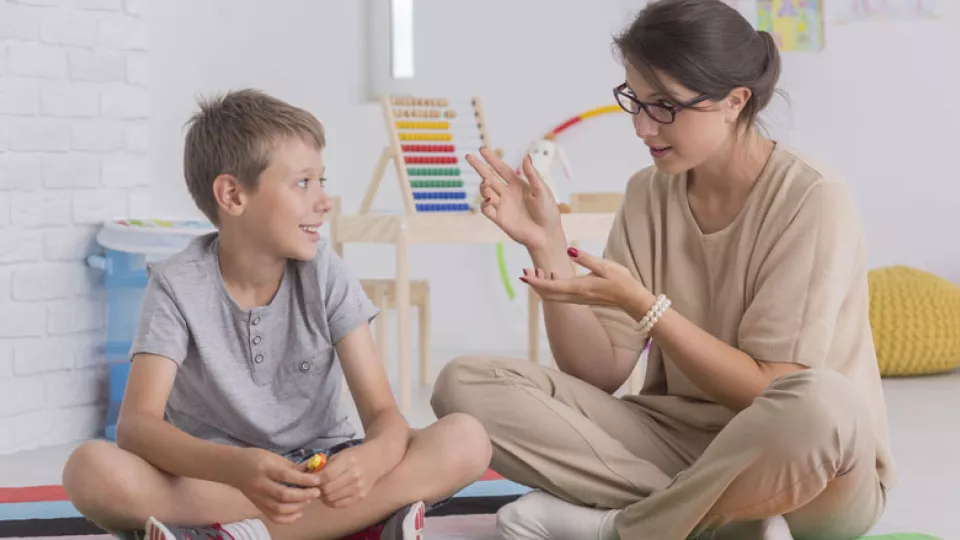
Who Are Speech-Language Pathologists and How Do They Help Children with Autism Spectrum Disorder?
Who are speech-language pathologists?
Speech-language pathologists (SLPs) are trained clinicians who specialize in the assessment and treatment of communication disorders. SLPs have a wide scope of practice and treat a variety of developmental delays, including difficulties understanding and using language, producing intelligible speech, and using communication to interact socially with others. Delayed language and difficulties interacting socially can be symptoms of autism spectrum disorder (ASD) and are often some of the first concerns reported by parents. For this reason, SLPs are in a unique position regarding early identification and treatment of ASD.
While most SLPs and occupational therapists have training in identifying developmental delays and signs of ASD, each specialist focuses on a different set of developmental skills. For example, an SLP may assess social use of language and ability to follow commands, while an occupational therapist looks more closely at fine motor skills and sensory integration. An interdisciplinary team assessment can best address a variety of developmental concerns, as each specialist will provide a discipline-specific perspective on your child’s development. If your child is already receiving speech therapy, it can be helpful to have an open conversation with your child’s SLP about any other developmental concerns, including those that may be signs of ASD. They should be able to help guide you in the process for additional assessment, if needed.
How can a speech-language pathologist help a child with autism spectrum disorder?
Perhaps your child finds it hard to understand what others are saying or following directions. Maybe your child can understand words, but has trouble letting you know what he or she wants and needs. Any sort of difficulty with communication can be frustrating for children and their families. It is important that kids feel understood and have successful experiences with communication. This is where your SLP can help.
Depending on your child’s age and needs, the SLP may target language skills, or coach your family to use a variety of strategies to encourage and expand the child’s language. There are also ways in which your SLP can help you set up the environment for more successful communication. For example, using visual supports like picture schedules, choice boards and gestures can help them successfully participate in routines, make choices, carry out instructions and transition between activities.
An SLP can even help nonverbal children communicate. This can involve using gestures, sign language, picture symbols or an electronic communication device. For some children, a combination of these systems may be appropriate and can help them be more independent and communicate more effectively. Your child’s SLP can determine what types of communication may be helpful and how to tailor different communication systems to your child’s strengths and needs.
Social communication (how we use language to interact with others) is another area of need for children with ASD. Treatment may focus on improving your child’s ability to participate in routine social exchanges and conversations. SLPs often lead social communication therapy groups that focus on social perspective taking, connecting with others, and understanding nonverbal cues such as body language and facial expression.
With or without a diagnosis of autism spectrum disorder, an SLP can help your child develop their language skills and become a more effective communicator. Building communication skills through speech-language therapy can alleviate frustration, reduce challenging behaviors, improve the quality of social interactions and promote independence.
Blake French, MS, CCC-SLP, CBIS is a speech-language pathologist specializing in pediatric populations. She is a Certified Brain Injury Specialist and has served a wide variety of children and families in public schools, private practice, and hospitals. Currently, Blake works in inpatient rehabilitation at Children's Hospital Los Angeles and serves as speech-language pathologist on an interdisciplinary diagnostic team for developmental disorders at CHLA’s Boone Fetter Clinic.


